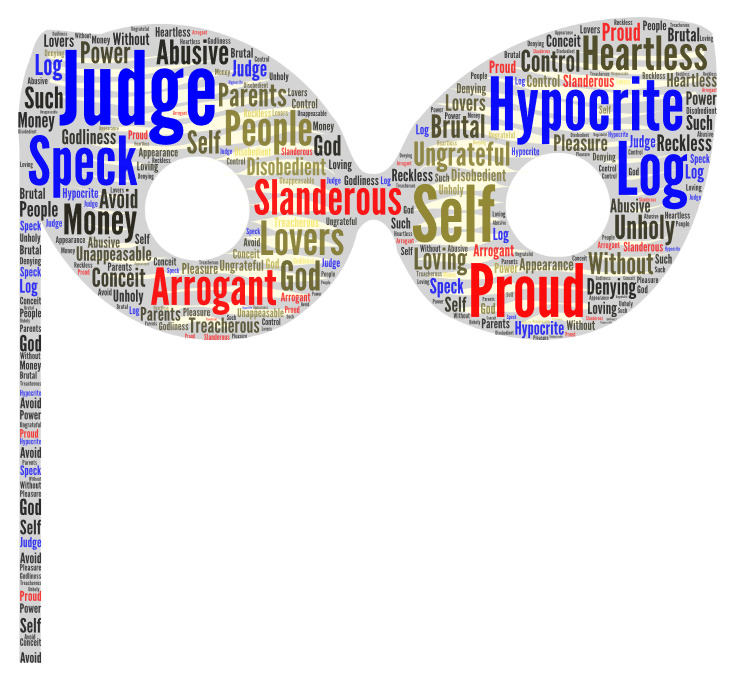|
Getting your Trinity Audio player ready...
|

Godly? Maybe not. But principled, scrupulous, and morally virtuous? Absolutely. Some of the best people in my life have not been professing Christians.
There, I said it.
Early on in a nearly fifty-year career in public education, I came to a humbling conviction which has never diminished: many of my non-Christian colleagues and friends are astonishingly good human beings – way better than I know I am.
They are more patient, caring, reasonable and even-tempered. More generous, courageous, and self-disciplined. I have seen them move with compassion toward the belligerent, the hurting, the unpopular or the hostile – those I would just as soon avoid — even as they tell me I’m not religious or I don’t believe in God. Where they have gotten their moral codes is beyond me, but they live by them.
They are faithful spouses, loving parents, and dedicated volunteers for causes that add to the shalom of our community. I love them.
Of course their goodness, like everyone else’s, is insufficient in the eyes of a holy and righteous God. But I cringe sometimes when my crowd gets careless with generalizations about people who do not share our beliefs. Our sniffy disapproval of the world may reinforce pride in being in the in-crowd, and it also tempts us to forget that our own salvation was not of our own doing. Our judgmental spirits show through in our attitudes and behaviors, making the gospel distinctly unattractive to a watching world.
We are living in difficult times. Paul’s description captures this well:
“. . .people will be lovers of self, lovers of money, proud, arrogant, abusive,
disobedient to their parents, ungrateful, unholy, heartless, unappeasable, slanderous,
without self-control, brutal, not loving good, treacherous, reckless, swollen with conceit,
lovers of pleasure rather than lovers of God,
having the appearance of godliness, but denying its power.
Avoid such people.”
(2 Timothy 3:2-5)
Reading such a litany, my first inclination is to point fingers. “Those” people are the lovers of self,
money, and pleasure. “Those” people are abusive, unholy, and brutal. “Those” people are the heartless, treacherous ones. We should avoid them.
Except that some of “those” people might be me; might be us.
Some years ago I stumbled upon a reference to Disney Princess Theology, our tendency to see ourselves as the princess-heroine in every Bible story. We imagine ourselves as the beautiful, courageous Esther, never the arrogant, power-hungry Haman. We identify with Deborah the influential judge, not the rest of the people of Israel who “again did what was evil in the sight of the Lord.” We relate to Mary of Bethany, bringing her costly ointment to anoint the Lord, not the other disciples tsk-tsking about the monetary waste. We automatically associate ourselves with the commendable characters, oblivious to what Jesus said about hypocrisy:
“Why do you see the speck that is in your brother’s eye,
but do not notice the log that is in your own eye?”
(Matthew 7:3).
Rereading the 2 Timothy passage, I find adjectives that sound suspiciously like me and my tribe. Proud. Arrogant. Slanderous.
We curate our social media profiles to show us at our best and attach pejoratives – like “stupid,” “ridiculous,” or worse — to the names of people or groups we disapprove of.
We share snarky Facebook memes or forward sensational emails without first fact-checking.
I am obviously sensitive to remarks painting all public school educators with the same disparaging brush, but I often fail to catch unfair generalizations about other groups; I am too busy clucking my agreement.
How quick we are to vilify “the world,” even when it includes decent citizens, doing the best they can. How quick we are to denounce the specks in others’ eyes.
In one of those moments when my Bible seemed to sprout a brand-new verse recently, I happened upon Paul’s admission that he himself, not being perfect, had to “strain forward. . . for the prize of the upward call of God.” Urging his readers to imitate his example, he writes:
“For many, of whom I have often told you
and now tell you even with tears [italics mine],
walk as enemies of the cross of Christ.”
(Philippians 3:18-19).
Far from sitting in self-righteous judgment, looking forward to the day when the enemies of the cross would get their just deserts, Paul sheds tears over their state.
He endured imprisonments, beatings, shipwrecks, hunger and thirst, cold and exposure, all to bring them the gospel.
Contemplating the fate of Jerusalem, which he called “the city that kills the prophets and stones those who are sent to it” (Luke 13:34), Jesus also shed tears.
“And when he drew near and saw the city,
he wept over it, saying,
‘Would that you, even you, had known on this day
the things that make for peace!”
(Luke 19:41-42a)
And shortly thereafter, he went to the cross to die for those selfsame sinners – and for hypocrites like me, like us. Would that we would follow his example, putting away our arrogance and pride to love our neighbors humbly, sacrificially, and unconditionally.

Beth Cutter
Copyright: Beth Cutter, May 2023